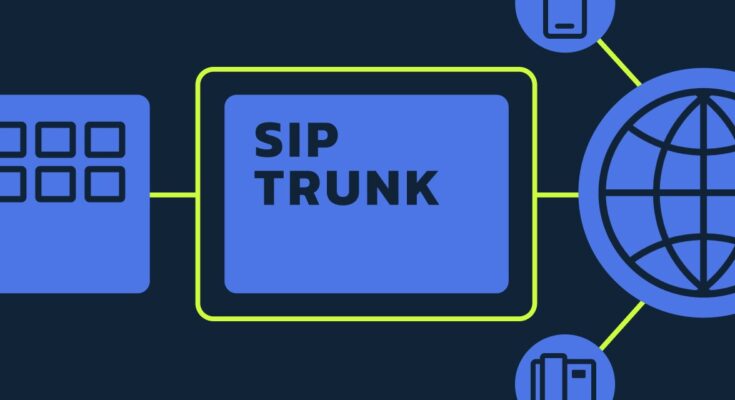Securing business communications has become even more important. As businesses move to truly virtual means, fraud, data theft, and cyber attacks rise higher. SIP trunking and CPaaS (Communications Platform as a Service) offer businesses a way to reinvigorate their communications infrastructure while ensuring solid security controls.
SIP trunk providers let businesses communicate and make calls through the Internet. It’s an easier, more flexible, and affordable way of communication.
Security Risks Associated with SIP Trunking and CPaaS
SIP Trunking is how businesses make voice calls over the Internet as opposed to a traditional telephone line. Beyond that, it meets the near-all needs of a modern enterprise on cost and flexibility; however, it has also introduced new risks to enterprises in the following ways:
Toll Fraud: Hacking into the SIP network to make unauthorized calls overseas, causing an enormous bill to accrue.
Eavesdropping: SIP encrypted traffic interception gives access to private information.
DDoS Attack: Deluging SIP servers with traffic, hence affecting adversely the company’s performance.
CPaaS has been ruling the roost when it comes to communication concerning the voice, message, and video API in the clouds; on the downside, security threat exposures include:
API Exploits: Hackers may exploit insecure or even secure APIs as unauthorized access points.
Phishing and Spoofing: These are corporate communications channels that hackers can spoof to conduct phishing scams against customers and staff.
Data Breaches: Either stolen information in transit or stored information compromised.
Secure SIP Trunking
Strong security necessitates organization-based impositions on SIP trunking networks. Some of these practices include:
Encryption: SIPS and TLS will safeguard audio traffic against eavesdropping.
Firewalls and Border Session Controllers: SBCs and firewalls deny unwanted traffic, unauthorized access, or attacks of denial.
Fraud Monitoring & Detection: Live monitoring that detects malevolent activity within the call context or unwanted behaviour blocked.
Access Control and Authentication: Multimode authentication (MFA) and IP-whitelisting restrict unauthorized access to SIP servers.
Securing CPaaS Deployments
What are the security proactive measures that need to be taken by CPaaS platforms because they are cloud-based:
API Security Best Practices: Strong Authentication (OAuth, API keys), Rate Limiting, Role-based permission access control (RBAC), and other measures as deterrent unauthorized access.
End-to-End Encryption: Voice and messaging transport shall be encrypted for data secured from interception.
Industry Standards Compliance: Depending on the industry, it should include standards such as GDPR, HIPAA, and PCI-DSS.
Regular Security Audit: Appropriately vulnerability scanning and penetration testing to find vulnerabilities.
Cyber attacks keep on sweeping against the accrued company tools for digital communication. The coming trends are:
AI-Based Security Solutions: These AI-based solutions will monitor and detect threats immediately and immobilize them.
Zero Trust Architecture: Requests for communication will be authenticated rigorously by companies.
Decentralized Identity Management: Verification using Blockchain can probably contribute towards the level of protection from identity theft.
The Increasing Need for Safe Business Communication
Digital media are becoming accepted by enterprises, and novel breaches are becoming a new breach. Cyber crimes may pertain to fraud, data hijacking, and denied use, which may hinder business operations as a diversion to enter sensitive data. Secure processes in SIP trunking and CPaaS enable and ensure that communication is effected securely while also protecting the organization from cyber-attacks.
Securing CPaaS in the Cloud
CPaaS brings business flexibility with cloud messaging, voice, and video. Security can never be compromised on that account, however. API security with authentication schemes, encryption of data in transit, and adherence to industry standards bring a halt to data breaches. Scheduled security scans and threat detection by AI safeguard CPaaS platforms even further from contemporary cyber threats.
Conclusion
SIP trunking and CPaaS will further enhance the cost efficiencies of business communication, security being at the foremost end. Encryption, authentication, and stringent controls shall save the business networks from getting affected in terms of quality in the virtual environment. Security would hold the key for ushering in any upgrades in communication technology.




